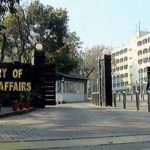UNITED NATIONS, Jan 31 (APP):Harsh winter conditions and ongoing hostilities in parts of Syria have resulted in the forced displacement of tens of thousands more civilians across the war-ravaged country, exacerbating the already dire humanitarian situation, the United Nations Emergency Relief Coordinator has warned. “The people of Syria are suffering a cold, hard winter,” Mark Lowcock, who is also Under-Secretary-General for Humanitarian Affairs, told the UN Security Council.
Updating the 15-member Council on the humanitarian community’s ongoing deliveries of assistance, as well as those planned for the coming months, he said that Syria’s severe winter has resulted in millions living under tents and tarpaulins, or in damaged buildings without power or heating. Meanwhile, there are severe shortages of basic items, ranging from blankets to baby milk to bandages, he added.Noting that the United Nations and its partners have raised $81 million in recent months to support more than a million Syrians with vital winter items, he called attention to the plight of 3 million people living in Idlib Governorate — where the risk of military escalation still looms despite the agreement reached in September between the Russian Federation and Turkey.
Meanwhile, Lowcock outlined plans to deploy a second convoy to camps for internally displaced persons in Rukban, where some 42,000 people remain stranded in deteriorating conditions after receiving their first aid delivery in November.
Citing additional sources of concern, he said ongoing military operations in parts of Deir-ez-Zor — where tens of thousands have been displaced — also pose a threat, while an unknown number of people remain trapped under the control of ISIL/Da’esh. Those displaced are exposed to hostilities, explosive hazards and intense cold, while receiving minimal assistance. While the United Nations is scaling up its assistance, the parties must do their utmost to protect civilians and allow them to move freely and seek safety and basic services, he said, calling for increased international support.
Further, Lowcock recalled that last month, the Council extended the authorization for the cross-border relief operation into Idlib. As hundreds of thousands of people are reached each month with lifesaving assistance through our cross-border operations, he said: “We must continue to be able to provide food, medicine, tents, critical winter supplies and other help.”
Meanwhile, he said some 42,000 people remain stranded in Rukban along the Syria-Jordan border. Conditions in the informal settlement have continued to deteriorate since the last humanitarian convoy to the area, from 3 to 8 November.
Eight infants reportedly died there since last month.“Again, the cold is making the situation even worse. So, it is critical that the parties support a second convoy to Rukban, Lowcock said, while explaining that the UN has been engaged on multiple fronts to ensure that can happen, including by addressing concerns expressed by Russia and the Syrian Government about the security of the convoy and monitoring arrangements for aid distribution.“On 27 January, we received verbal approval from the Ministry of Foreign Affairs in Damascus for the convoy to proceed. Security guarantees have also been received from the Russian Federation and from International Coalition Forces,” he told Council members, and planning was now underway for loading of the trucks to begin before the end of the week, and for them to set off by 5 February.“We call on all parties to ensure that this goes ahead without any further delay,” he stated.





